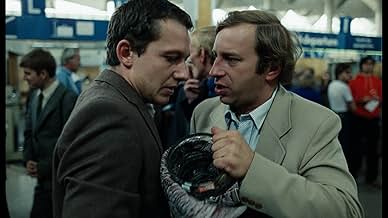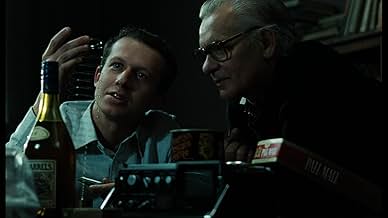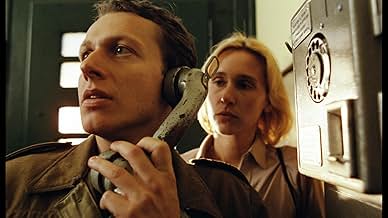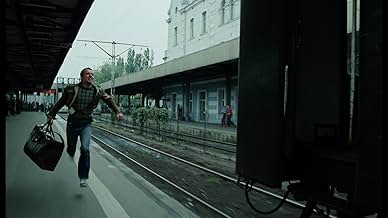Witek persigue a un tren. Se siguen tres variaciones de cómo un incidente tan aparentemente banal podría influir el resto de su vida.Witek persigue a un tren. Se siguen tres variaciones de cómo un incidente tan aparentemente banal podría influir el resto de su vida.Witek persigue a un tren. Se siguen tres variaciones de cómo un incidente tan aparentemente banal podría influir el resto de su vida.
- Premios
- 2 premios en total
- mez Werki
- (sin acreditar)
- dzialacz ZSMP
- (sin acreditar)
- Buzek
- (sin acreditar)
Argumento
¿Sabías que...?
- CuriosidadesAlthough the movie was made in 1981, it had its premiere in 1987. The delay was because of state-imposed censorship due to the film's political content.
- Citas
1. Werner: I intend to give you my current thoughts on an idea I've been committed to for 40 years. Every generation yearns for light. It needs reassurance and faith that the world can be better and a fairer place. This yearning which is older than Marx and younger than Marx, is like a drug. Early in life it brings joy, because the light seems so near and within reach. At life's end it brings bitterness, because the light has grown once again. In these 40 years I've lived through many things and the light seems further away than ever before, and thus I shouldn't encourage you, but you can be sure of one thing: without bitterness and this hope, life would be pitiful indeed.
- Versiones alternativasThe film was scheduled for release in 1981, but was suppressed by the Polish government due to its criticism of Communist regime. The film was eventually released in 1987 with some of the politically sensitive material cut (these cuts totalling roughly 9 minutes). The film has since been released in a uncut form, however one of the scenes involving Witek being beaten by the train guard remains lost.
- ConexionesFeatured in Arena: The Ten Commandments of Krzysztof Kieslowski (1990)
Within the context of the socialist police state of Poland at that time he asks us if we are supposed to fight the system we live in, be part of it and change it from the inside, or whether being happy in life is the one thing we are actually responsible for? In other words, is it worth fighting against everything we don't like? Is accepting it no different from selling out? Should we just try to make the most of it? Kieslowski gives us no answers, which is why this film, as well as all other Kieslowski films I have seen, seems so honest, so true to life. The only honest answer to the hard questions is "I don't know"
The film is also graced with careful, subtle characterizations, beautiful but gritty camera-work, a true comprehension of human emotions as well as of human conflict, and the style and brilliance of a man who truly understands.
I know this: Kieslowski is a master.
- danielackerman
- 15 jul 2004
- Enlace permanente
Selecciones populares
- How long is Blind Chance?Con tecnología de Alexa
Detalles
Contribuir a esta página


































